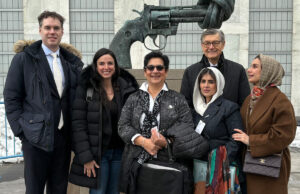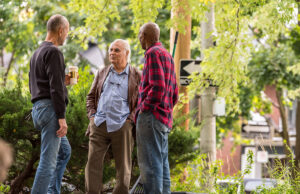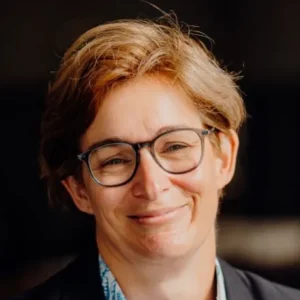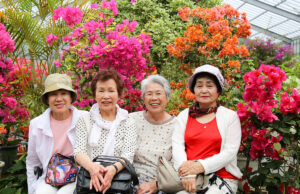For Emi Kiyota, improving the quality of life for older people is a lifelong passion. She traces it to the experience of visiting her grandmother in a Japanese nursing home and being profoundly disappointed in the way it treated residents and in its regimentation. And while improving the physical and social environments in which older adults are cared for has been an important part of her career, what she really wants to change are mindsets. It’s the way we think about older people—and the way they think about themselves—that she considers a barrier not only to maximizing the well-being of elders, but also to integrating their knowledge and energy into meeting the challenge of serving the world’s rapidly ageing population.
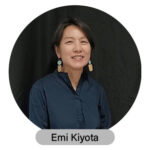 Kiyota is an environmental gerontologist and an organizational culture change specialist with 20-plus years of global experience designing and implementing person-centered care practice in long-term care communities and hospitals. Since 2022, she has been an associate professor at the Yong Loo Lin School of Medicine and College of Design and Engineering, and director of the Centre for Environment and Ageing Well at the National University of Singapore. A current project there includes creating an index to measure the impacts of the built environment on people’s quality of life in various senior housing typologies. Other research interests include community-based solutions for aging in place in Asia, design for brain health, and the intersection of ageing and climate change.
Kiyota is an environmental gerontologist and an organizational culture change specialist with 20-plus years of global experience designing and implementing person-centered care practice in long-term care communities and hospitals. Since 2022, she has been an associate professor at the Yong Loo Lin School of Medicine and College of Design and Engineering, and director of the Centre for Environment and Ageing Well at the National University of Singapore. A current project there includes creating an index to measure the impacts of the built environment on people’s quality of life in various senior housing typologies. Other research interests include community-based solutions for aging in place in Asia, design for brain health, and the intersection of ageing and climate change.
Kiyota is best known as the creator of Ibasho (named with a Japanese word meaning “a place where you can feel like yourself”), a global nonprofit that puts her vision of a “socially integrated, sustainable community that values its elders” into practice. But Ibasho is not only a care and services model for older adults; instead, it seeks to create a mindset of empowerment for elders and build a place that is organized and run by older adults, and fully integrated into its community.
The Ibasho concept is summed up by Kiyota on the organization’s website, where she wrote, “Our common perception of the elderly as a vulnerable group in need of assistance with nothing to offer the rest of us marginalizes a large and fast-growing part of the world’s population. Besides its obvious humanitarian failings, this perception is not sustainable financially. Failing to draw on the resources of older people and treating them solely as a group to be cared for could bankrupt economies around the world. We need to encourage civic engagement by elders in order to create inclusive communities. Not only will this allow people to age without sacrificing a sense of purpose and meaning, but it will also increase the resilience of local communities, helping them withstand the impacts caused both by the global aging phenomenon and by natural and man-made disasters.”
The first “Ibasho Cafe” is in Ofunato, Japan, started in 2011 after the Great Eastern Japan Earthquake and the subsequent destruction caused by the tsunami at Ofunato, Iwate, when victims of the disaster were living in temporary housing. As Kiyota wrote at the time, “this cafe is NOT going to be a ‘senior center’ where elders have scheduled visits to socialize with others and receive care, but the place where elders are involved in design, construction, and operation by providing their wisdom, experience, and compassion to the community.” By 2013, Kiyota said, older people were running the Hub and it has been self-sustaining since then, featuring a cafe, a vegetable garden, a farmer’s market, a children’s day care, and more. It has also sponsored thousands of local events organized by the elders.
Today, there are Ibasho sites in the Philippines (in Ormoc, created following Super Typhoon Yolanda in 2013), and Nepal (in Matatirtha, created after the 2015 earthquake). A new Ibasho site, which Kiyota calls a “hybrid” because of the involvement of a hospital, a social service agency, a university, and the government, has been launched in Singapore, where Kiyota has lived since coming to the National University of Singapore in 2022.
In any group of elders, Kiyota has found a few individuals who want to lead and push the development of community hubs. “You cannot really discount the power of this small number of leaders, because every successful movement started [at] someone’s dining table talking about what needs to be done,” she said. “And then, two people became four, and we will ask, ‘Please bring your family or friends who could help if you’re interested.’ It’s a ripple effect that [can be] time consuming, but it is most effective.”
Kiyota’s involvement with the Global Ageing Network goes back more than a decade. She served on the board from 2016–2019, and authored two Global Ageing Network publications, including Elder Care Providers & COVID-19 Cross-Cultural Perspectives in 2021, which included interviewing 19 providers in 11 countries about their experiences in the global pandemic; and the report, “Cross Cultural Snapshot of the Vaccine Distribution: A Provider Perspective.”
Kiyota will participate in the upcoming Global Ageing Network Summit: Innovation In Aged Care, on 1 November, 2025, presenting on “Reimagining Ageing in Community.” In her session, she says, she will “challenge the current narrative of aging and the social role of older persons, which is heavily skewed toward providing care. We really need a paradigm shift; how can we empower older persons and then directly connect them to the community, so that they can be engaged while aging in place?” She hopes attendees will leave the conference with an understanding of how ageing issues are globally connected and must be solved with international collaboration, and that the empowerment of older people is key to solving challenges facing aged care worldwide.
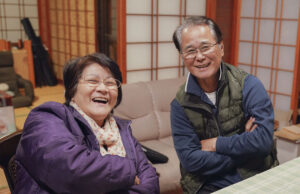

 Kiyota is an environmental gerontologist and an organizational culture change specialist with 20-plus years of global experience designing and implementing person-centered care practice in long-term care communities and hospitals. Since 2022, she has been an associate professor at the Yong Loo Lin School of Medicine and College of Design and Engineering, and director of the Centre for Environment and Ageing Well at the
Kiyota is an environmental gerontologist and an organizational culture change specialist with 20-plus years of global experience designing and implementing person-centered care practice in long-term care communities and hospitals. Since 2022, she has been an associate professor at the Yong Loo Lin School of Medicine and College of Design and Engineering, and director of the Centre for Environment and Ageing Well at the 